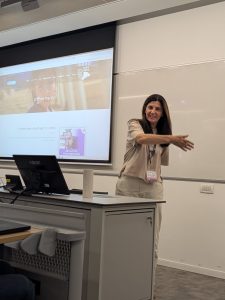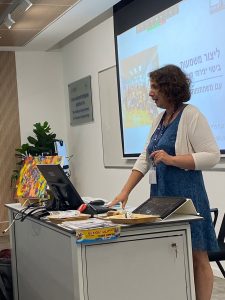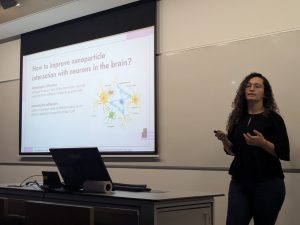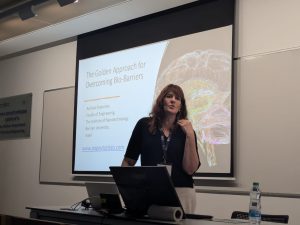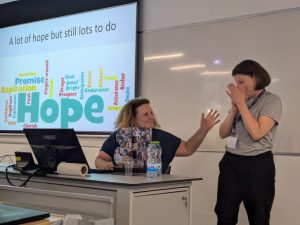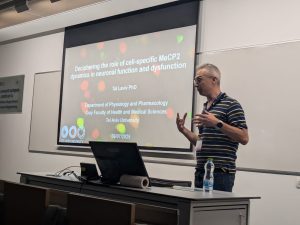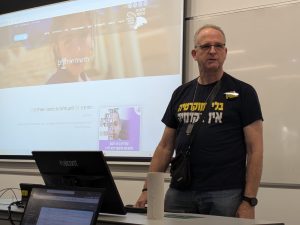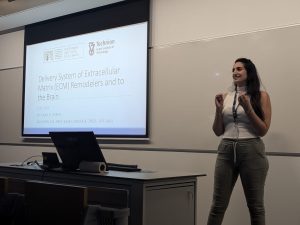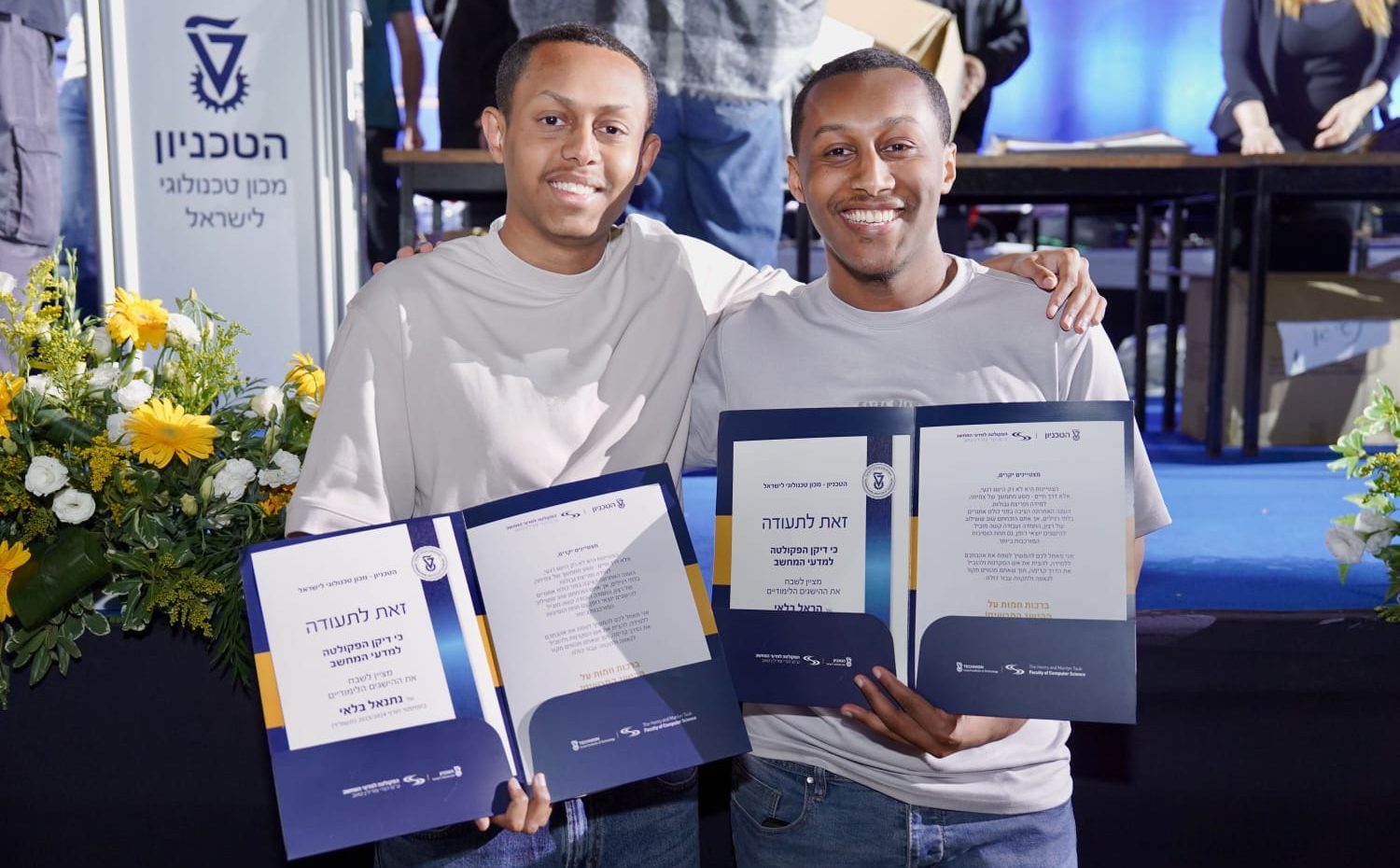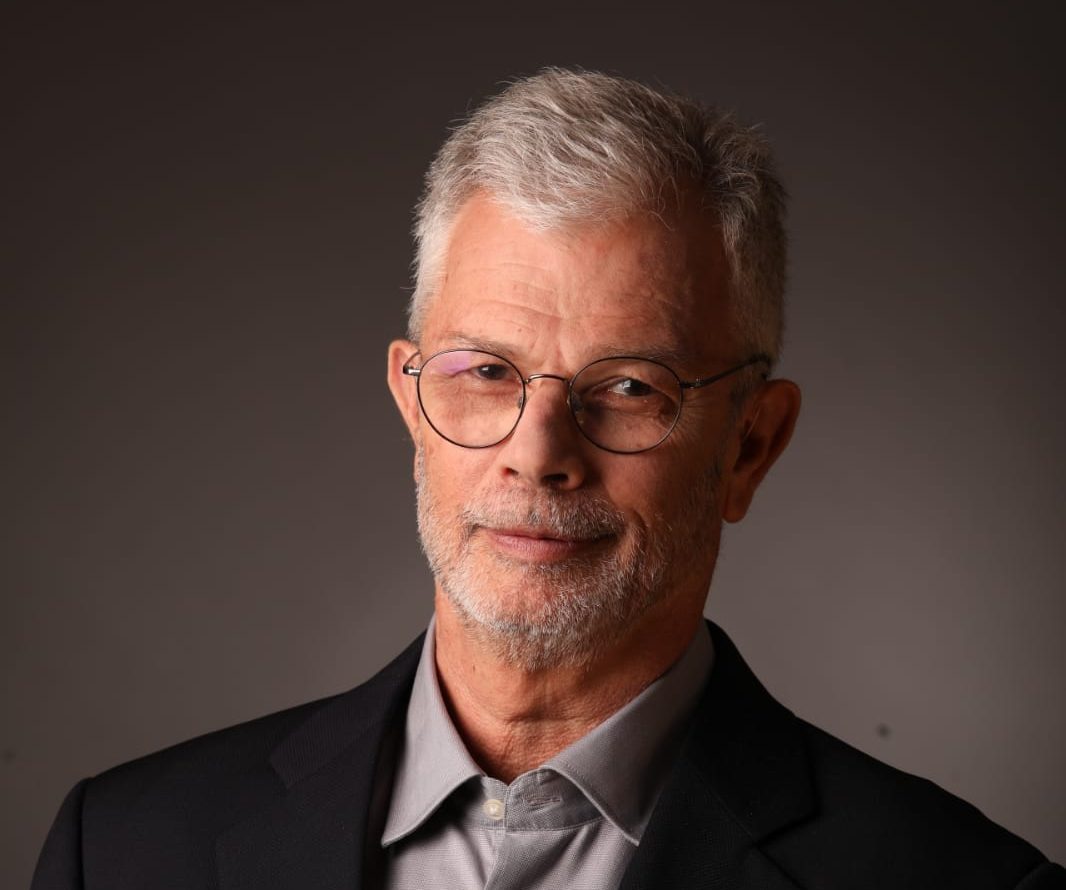When Science Meets the Heart: “Silent Angels” at the Technion
A unique conference on Rett Syndrome, from scientific and personal perspectives, brought together researchers, families, and doctors
The first Israeli conference on Rett Syndrome was held at the Wolfson Faculty of Chemical Engineering at the Technion on July 6. The conference name, “Silent Angels,” is derived from an oft-used term for girls affected by this rare condition. In addition to groundbreaking scientific presentations, moving personal stories from parents shared the pain, challenges, and optimism that accompany life with the syndrome.
The conference – initiated by Dr. Assaf Zinger from the Wolfson Faculty of Chemical Engineering and the Rett Syndrome Israel Association – was led by Sigal Hertz-Tirosh. Its goal was to build a bridge between families, the medical community, and the academic world, bringing together hope, research, and humanity under one roof.
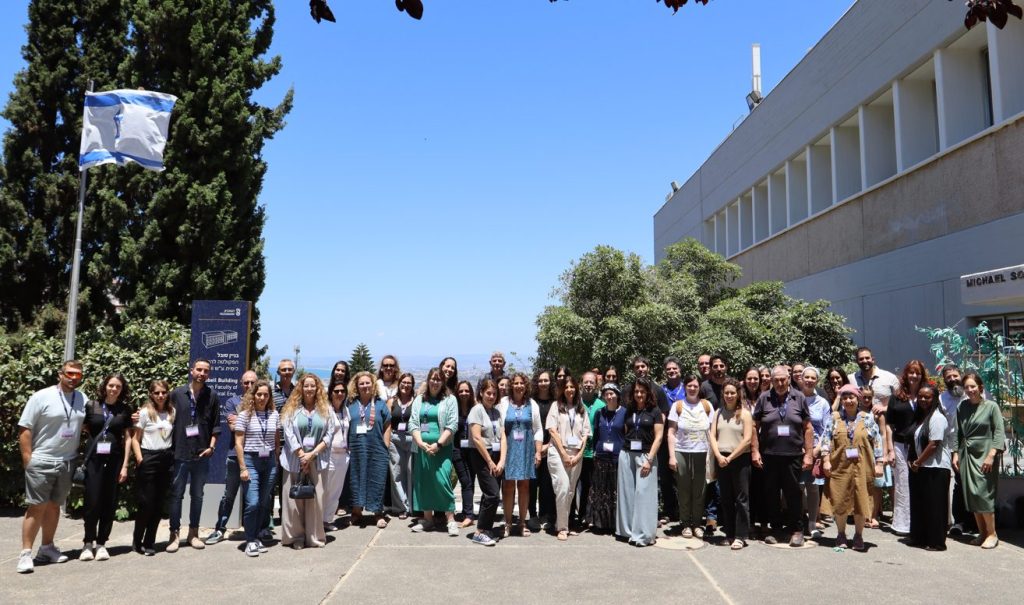
Rett Syndrome is a developmental disorder that occurs in about 1 in 10,000 female births and very rarely in males. It is a neurodevelopmental genetic disorder marked by a series of impairments, including loss of speech, difficulty walking, breathing, and digestive issues, and loss of hand function. “Rett girls” are often able to communicate without speech, through their eyes – hence the nickname “Silent Angels.”
Prof. Yoed Tsur, dean of the Faculty of Chemical Engineering, welcomed the attendees, thanked Dr. Zinger for the initiative, and noted the unusual format of the event – bringing together researchers, physicians, therapists, and families to expose Technion scientists to the disease. He emphasized the importance of giving strength to families facing complex challenges by assuring them that the disease is being actively researched to find a cure.
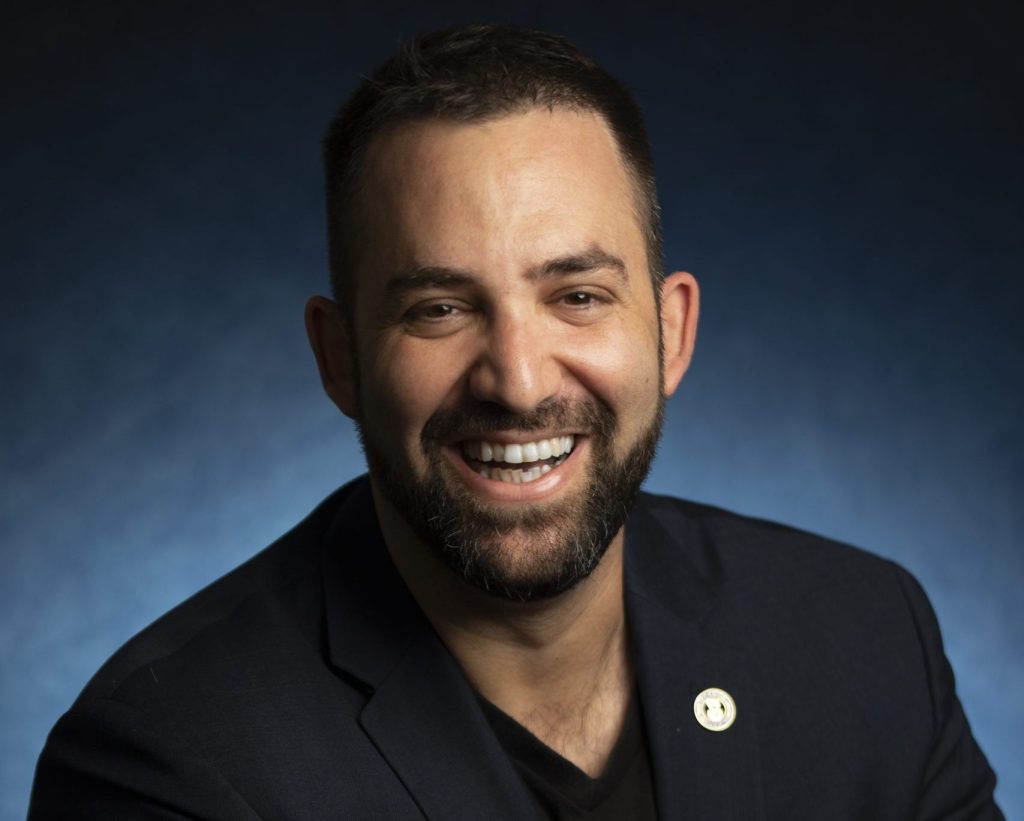
The conference showcased several emerging technologies that may assist in future treatments, one of which was developed in Prof. Zinger’s lab. He explained that “This technology, based on biomimetic nanoparticles for delivering drugs to the brain, has already shown promise for drug delivery via injection and ingestion, and now also through inhalation. This is a real breakthrough in developing non-invasive treatments – but we must remember, we’re still at the beginning.”
Beyond the scientific talks, deeply emotional personal testimonies were shared.
Lilit Zisman, a co-founder of the Rett Syndrome Association, spoke about the journey of her 28-year-old daughter Hadar – from Beit Issie Shapiro to enlisting in the IDF and studying at Bar-Ilan University: “We did the best we could – but sometimes, it just wasn’t enough.”
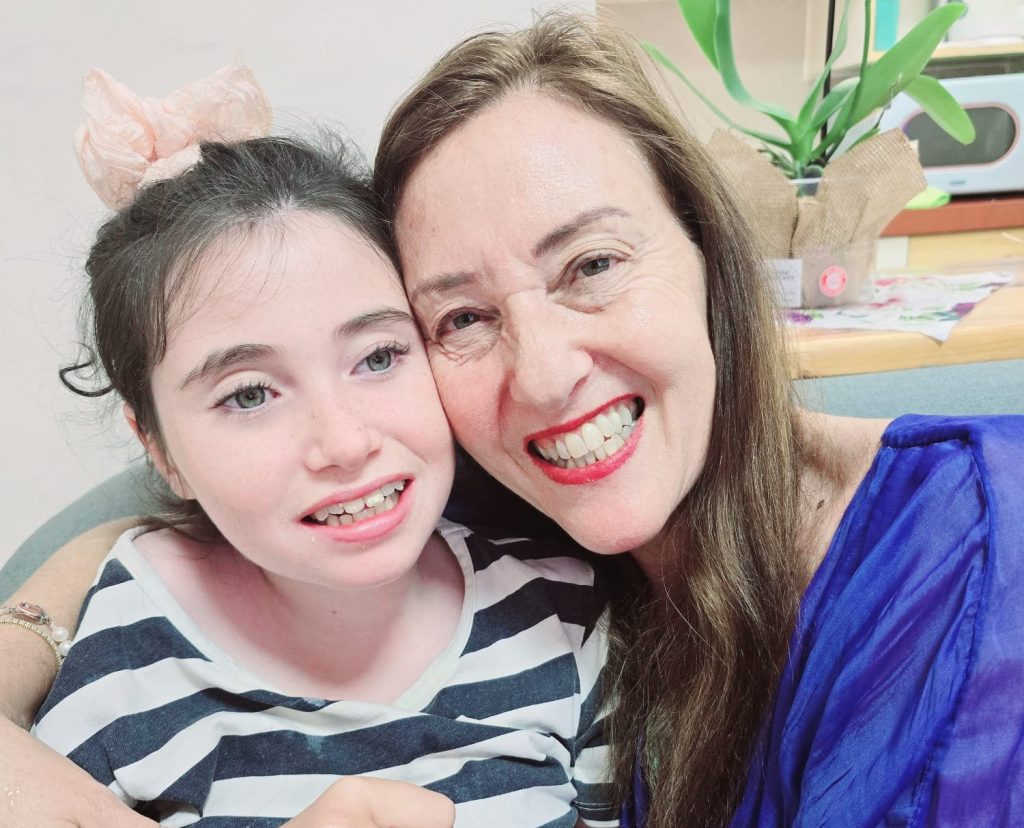
Hedva Levy, mother of Michal, spoke movingly about her daily struggles:
“I have 30 tasks each day, and if I manage to complete two, I’m satisfied. Michal depends on me for everything – eating, bathroom, medication, and mobility. It requires self-compassion – learning to live without constant guilt.” Levy, a school counselor and couples’ therapist, shared how she balances family, work, and volunteering, including supporting mothers of children injured in the October 7 attacks: “Maybe I could’ve had a more prestigious career, but there are many school counselors. Michal has only one mother.”
The conference organizers concluded that the event was not only an academic milestone but also a moment of mutual embrace between science and humanity, offering hope for a better future for the “Silent Angels” and their families.

